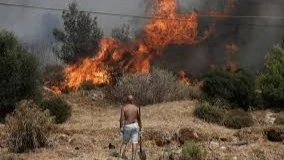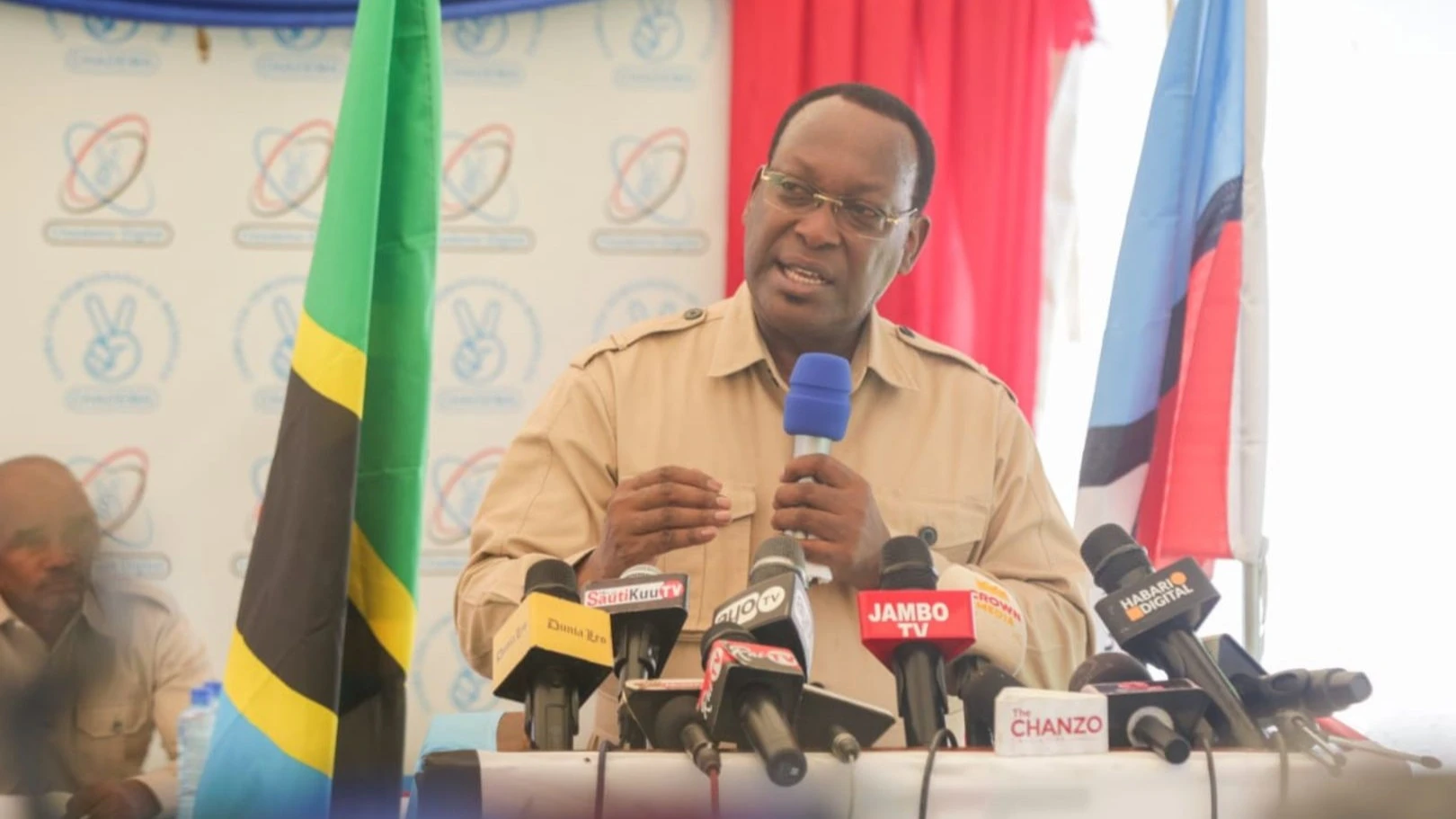President Samia’s call to halt forest fires impresses organic agriculture proponent

IN the lush southern highlands of Ruvuma, a region renowned for its agricultural resilience, districts such as Mbinga, Songea, Namtumbo, Tunduru, and Nyasa have long thrived on farming.
Yet, as each planting season approaches, a dangerous practice persists, the widespread use of fire to clear fields.
This tradition is causing devastating harm, not only to the forests that shape these rural landscapes but also the soil that sustains thousands of livelihoods.
The once vibrant forests are being systematically destroyed, stripped bare by uncontrolled fires that ravage entire ecosystems, leaving the land barren.
In Mbinga District, where the Matengo people have coexisted with their mountainous surroundings for generations, the loss is profoundly felt, their biodiverse-rich forests are vanishing rapidly, year after year, sacrificed to flames in the name of agricultural preparation.
The transformation is stark—what were once verdant hillsides now resemble scarred patches of land, stripped of life and vitality. The fires, deeply embedded in local farming traditions, have eroded natural vegetation and destabilized the already fragile environment.
Over generations, this practice has gradually depleted the soil’s fertility, pushing ecosystems toward collapse.
During a rally in Namtumbo District on September 26, President Samia Suluhu Hassan delivered a stern message.
She urged local communities to abandon the destructive habit and protect the forests that remain. "Stop burning down forests, if you must burn your fields, ensure the fire doesn’t spread and destroy conserved areas," the President warned. Her message is unequivocal, that Tanzania's environmental future hinges on collective action.
Her remarks come at a pivotal moment when Tanzania, like much of the world, faces the twin crises of environmental degradation and food security.
President Samia highlighted the far-reaching effects of forest fires—not only do they destroy vast woodlands, but they also damage critical infrastructure.
Uncontrolled fires frequently ravage roads, which are vital to connecting rural communities and fostering economic development, this only worsens conditions in regions already struggling with poverty.
As the President urged citizens to stop burning forests, Bakari Mongo, Chief Executive Officer of the Tanzania Organic Agriculture Movement (TOAM), echoes her sentiments.
He told The Guardian that said the President's ban on burning comes at an opportune moment, as stakeholders in organic agriculture and agroecology advocate for a shift towards sustainable farming practices.
Mongo stresses that traditional methods, such as leaving crop residues like maize stalks on fields after harvest, can help restore soil fertility.
"Rather than burning fields, it’s time we raise awareness and ensure farmers move away from fire-based practices that harm the soil, forests, and the creatures that inhabit them," he said.
Mongo emphasized that incorporating organic materials back into the soil reduces reliance on chemical fertilizers and preserves the land for future generations.
This approach aligns with the global movement toward agroecology, a model that balances farming with environmental stewardship. In a region as dependent on agriculture as Ruvuma, adopting such practices could revitalize the land and secure the livelihoods of those who depend on it.
The destruction of Tanzania’s forests carries broader socio-economic consequences; forests regulate the climate, support biodiversity, and maintain essential water cycles.
Their loss exacerbates climate change, leading to more frequent droughts and floods—conditions that disproportionately impact both rural and urban communities.
Mongo added: “The loss of forests has significant consequences for communities, not only ecologically but also economically, for many rural households; forests provide essential resources such as firewood, food, and traditional medicines." As these resources dwindle, poverty deepens, and communities become increasingly vulnerable.
Tanzania’s burgeoning eco-tourism industry, a vital economic driver, faces decline as forests shrink and wildlife habitats disappear.
President Samia’s call to action is a plea for collective responsibility, protecting Tanzania’s environment, she insists, is not solely the responsibility of government agencies but a shared duty for all citizens.
Communities must take ownership of their natural resources, embrace sustainable land management, and ensure forest fires become a leftover of the past.
One solution lies in education and awareness campaigns targeting both farmers and local leaders.
Through highlighting the long-term benefits of sustainable farming and forest conservation, the government can foster a cultural shift away from destructive practices.
Local authorities must also be empowered to enforce regulations that prevent uncontrolled fires and hold accountable those who fail to comply with proper land management practices.
While sophisticated technology, such as satellite-based fire monitoring systems, may not yet be feasible in rural Tanzania, practical alternatives exist.
Community-based fire surveillance and early warning systems, tailored to the realities of the Southern Highlands, could help detect and control fires before they spread.
These solutions would empower local communities to respond swiftly, minimize damage, and preserve the ecosystems on which they depend.
President Samia’s message is as urgent as it is timely. Tanzania’s forests, if protected, will continue to sustain life for generations to come. But the window to act is closing, as she poignantly stated, “The environment must be protected if it is to protect us in return.”
Top Headlines
© 2024 IPPMEDIA.COM. ALL RIGHTS RESERVED

























